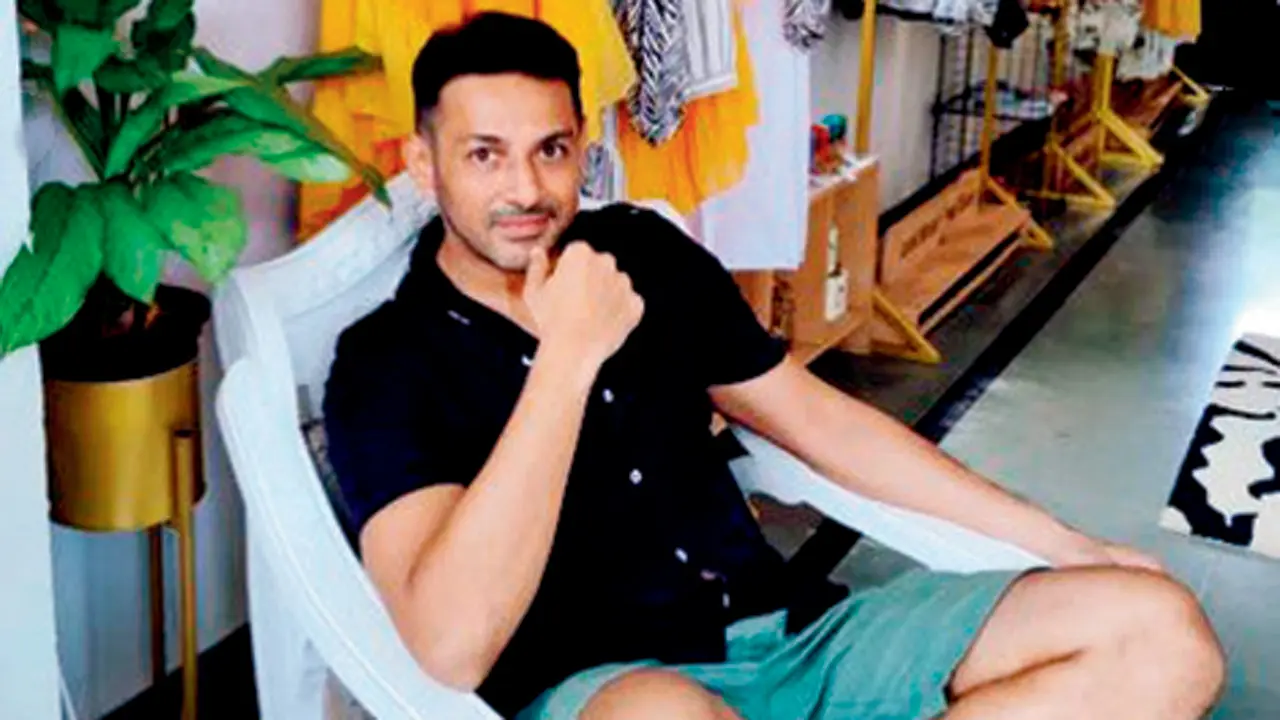With his social media series Rangila Rupya, writer Apurva Asrani spotlights the LGBTQiA community’s spending power and demands better returns — no rainbow-washing allowed

Apurva Asrani has written Aligarh (2016), the courtroom drama Criminal Justice (2020), and co-written and edited Shahid (2013)
In 2018, the Supreme Court decriminalised Section 377. So, no one could be put behind bars for being gay. But then what? Decriminalisation was only the first fight. The demand for respect and equal rights is still ongoing. While the Pride flag is often used by brands to show support — especially during the Pride Month — basic rights are still denied.
“I have been very uncomfortable with the term queer,” starts off screenwriter, editor Apurva Asrani, when we get on a call with him to discuss his new social media series, Rangila Rupya, that reflects the economic influence and voter power of the LGBTQiA+ community and his desire for a movement that solely reflects the community’s struggle in India. “When people called me to their queer festivals, I used to write to them saying, if you call it queer, I’m not coming because it’s not our term. It’s a term that is derogatory for us. I feel we need to find out what our own LGBTQiA+ history is and own up to that.”
He credits the West for rioting for their rights, and for the likes of Harvey Milk — the first openly gay man to be elected to public office in California — for standing up against the establishment. The word queer, which was once derogatory, the West turned it into power, but Asrani feels, “There’s no power in the word ‘Queer’ in India. It’s not our word. It’s not something that comes from our society. This is not at all to take away from that extremely brave movement there.” While he believes it gave them courage, he also feels it is somehow unfair to those who fought the battle in India. He explains, “Our fight is different. Our fight has been legal, in courts, through think tanks, through the media. So our movement needs to be defined. That’s my effort.”
After his reel, titled Are we truly queer? went viral, Asrani realised others shared his discomfort. So, he decided to bell the cat. The screenwriter believes that the dialogue needs to change after 10 years. The people from the LGBTQiA+ community still can’t marry, inherit property, or claim the body when a spouse passes away. Or get insurance together. Yet they are important for the vote bank and the economy, but remain on the periphery.
“We made Aligarh 10 years ago, where we talked about the cruelty of society towards a man who wanted to live his identity, his life, and he was not allowed to do that. He was harangued to his death. But 10 years later, I feel the dialogue needs to be different. We are no longer victims. Because it’s been seven years since the decriminalization has happened. But that is not the end of the battle. That is actually the beginning of the battle. Decriminalize meant that we can’t throw you in jail anymore for being gay, or for having sexual relations with the same sex. That’s all that meant. But where are the rights? Can we get married? Can we be with the person we truly love? If the partner or spouse dies, can we inherit property? The first thing is, you don’t have rights to the body of the person that has died. The family usually throws you out, and doesn't let you come to the hospital when the person is sick. Where are all our rights that should be due to us? Because we cannot get insurance together. Though they say you can get a bank account together, I have read multiple accounts where the same bank has not allowed it.
During Pride month, people will put out these campaigns. But the follow-through does not happen because the person on the ground does not even understand what this means. And they come with their own personal biases. So anything that needs to be systemically put into people has to be converted into a law. This has to come from the government. How do you speak to the government? That was where I think this was born. You speak to the government, you speak to establishments, you speak to businesses. This is, I think, the first government in India, where corporations, business establishments are so closely tied in. There are campaigns like Make in India. There is so much that is focused on building this nation through its economy, through business, through innovation. So I felt like people can understand the staggering numbers of Rangila people. That is a term that I’m comfortable with. So it was born from there, first of all, to own a term.
Like you don't have to be a woman to be a feminist, similarly you don't have to be gay to be an ally. A rangila person is someone who believes in these different voices that can coexist. In the video, I say 135 million people. There are so many who are still in closets. There are so many who are still figuring it out. There are so many who will figure it out in the future. It is a spectrum and we are exploring it through our lifetimes. So these are large numbers of people. So you have to understand that these people are people that have a lot of spending power. Now, for example, let’s talk about a gay person like myself. All right? I don’t have a wife. I don’t have children. I don’t have a family that I’m not saving for my child’s education. I’m not saving copious amounts of money that I need to give to these schools that charge exorbitant sums to educate a child. You know, there is no marriage fund. There is none of these things, right? So I have that much more disposable income. I’m also an employee that’s not going to say at six o’clock that I need to go pick up my child from school. I’m the kind of person who will say this needs to be done. We are spending money on the holidays. We are spending it in restaurants. We are spending it on food. Now, there is a lot of economic power that lies in the hands of this community. The economic power of our community is huge — around 2 lakh crores and growing. If businesses want that money, they better respect us, or we’ll take our money elsewhere. That’s why with the Rangila campaign, I’m collaborating with many influential Rangila people to create a list of businesses, shops, banks, and establishments that are Rangila-friendly. We’re making it clear: we are watching you."
Citing the cancellation of Jainil Mehta’s dance show, titled Samaaj, on April 26 at the Madhyavarti auditorium of Jawahar Kala Kendra due to pressure, Asrani shares that he wouldn’t invest in cities or brands that don’t respect the Rangila-people. “I’m happy to see some brands like Lalit Group of Hotels and Godrej walking the talk. When I hear about incidents like Jainil’s cancellation, it baffles me because it’s bad business sense — you lose good business, and disrespect art and culture. We’re not just a spending power; we’re also a huge vote bank."
Landmark moments in the LGBTQiA+ movement in India
1977: First public coming out
1981: BOMGay the first known Indian gay film
1999: First Pride parade
2001: Legal challenge to section 377 begins
2009: Delhi HC decriminalises homosexuality
2013: Supreme Court reinstates section 377
2014: Transgender rights recognised
2017: Supreme Court declares Right to Privacy = Right to Sexuality
2018: Section 377 decriminalised
2023: Supreme Court declines same-sex marriage legalisation
 Subscribe today by clicking the link and stay updated with the latest news!" Click here!
Subscribe today by clicking the link and stay updated with the latest news!" Click here!









